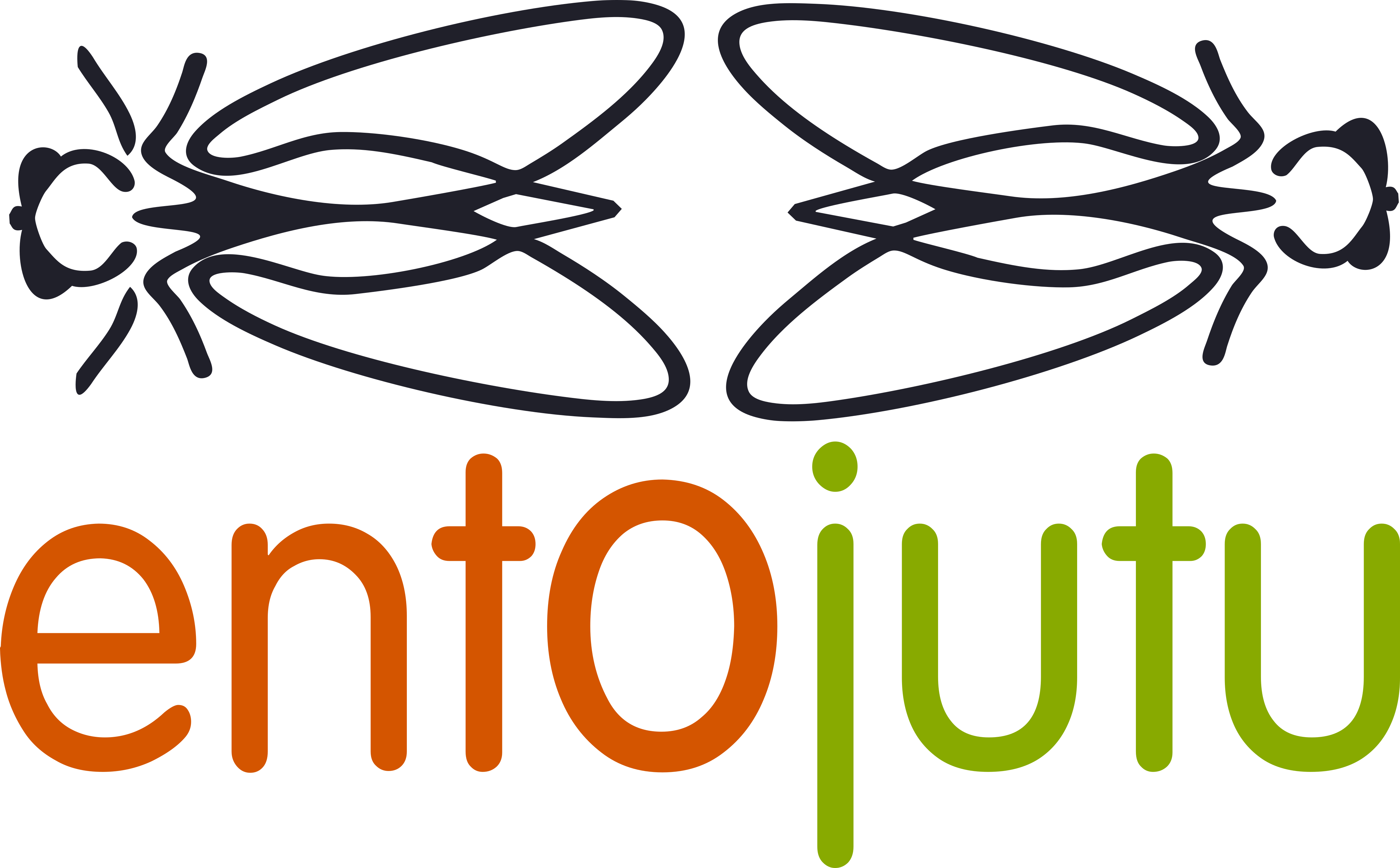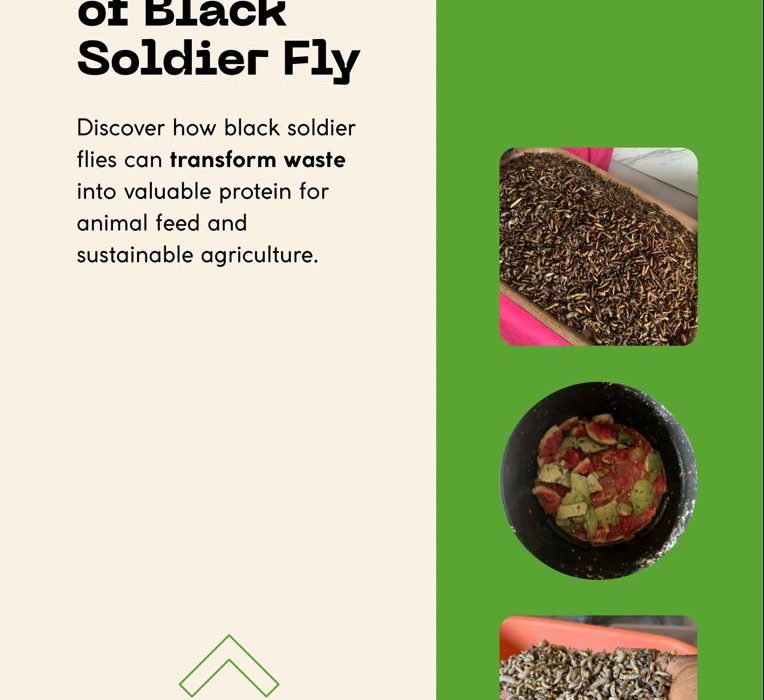The Basics of BSF Farming
BSF farming revolves around the use of the Black Soldier Fly, a very peculiar insect, that doesn’t bite, sting, or spread diseases. Unlike the annoying house flies that buzz around your kitchen, the Black Soldier Flies are actually helpful creatures. The adult flies live only about a week, just long enough to mate and lay eggs. They don’t even have working mouthparts as adults, their physiology is completely focused on reproduction.
It’s the baby flies, called the larvae (or grubs) that do all the real work. These little creatures eat through food waste like nobody’s business, chomping down huge amounts daily. We’re talking about creatures that can eat up to twice their body weight every day. Think of them as, tiny garbage disposals that work non-stop.
After a couple of weeks of non-stop eating, they become ready for harvest. These larvae can grow from tiny hatchlings to fat, protein-rich grubs about an inch long in just 2-3 weeks. It is that rapid growth is that makes them so valuable.
How It Actually Works
The process is pretty straightforward:
- Flies lay eggs near your food waste. A female can lay hundreds of eggs at once in small cracks or crevices near the waste.
- Eggs hatch into larvae that start devouring the waste. It takes only a few days for the eggs to hatch into tiny white larvae that immediately begin feeding.
- Larvae grow fat on your leftovers. They’ll eat almost anything organic you throw their way.
- You collect the larvae when they’re big and start to crawl up and out. Here’s the fun part, when they’re ready to turn into flies, the larvae naturally try to climb upward and away from their food. This “self-harvesting” behavior makes collecting them super easy, just provide a ramp leading to a collection bucket.
If you let some larvae complete their lifecycle, they’ll turn into pupae and eventually emerge as adult flies. These adults will mate, lay more eggs, and keep your system running without you having to buy more flies. Talk about Sustainability!
Turning Trash into Treasure
The best part about BSF farming is that, these larvae aren’t picky eaters at all. They’ll munch through anything, including:
- Kitchen Scraps
- Garden waste like grass clippings and plant trimmings
- Rotten fruits and Vegetables
- Stale food
- Animal Manure
It is amazing how quickly they work. A bucket of BSF larvae can power through a pile of food waste that would take months to break down in a regular compost bin. They shrink your waste pile by up to 95%, practically making it disappear. Plus, when managed properly, a BSF bin has very little odour, unlike other food decomposing processes.
Getting the Good Stuff
BSF farming isn’t just about getting rid of waste, you also get valuable things in return:
- The larvae themselves make fantastic animal feed for chickens, fish, or pets. They’re packed with protein (about 40%) and healthy fats, making them a nutritional powerhouse. Chickens go crazy for them, and many fish farmers are using them as a sustainable alternative to commercial feeds.
- Their poop (called frass) works as an excellent farming fertilizer. This stuff is gold. It’s rich in nutrients that plants love, and it even contains beneficial microbes that can help your plants fight off certain diseases.
- When food waste breaks down in landfills, it produces methane, a greenhouse gas that’s about 25 times more potent than carbon dioxide. By processing your food waste with BSF, you’re basically helping to combat climate change.
- Reduced waste management costs. Now this one needs no additional explanation.
Ready To Get Started?
Starting your own BSF farm doesn’t require fancy equipment or a big investment. You would need:
- A few plastic buckets or Bins
- Some food scraps to get started
- A warm spot (BSF larvae like temperatures between 70-95°F)
- A little patience while you wait for the flies to find your system
In warmer climates, Black Soldier Flies will often find your compost naturally if you leave some food scraps exposed. In cooler areas, you might need to order starter larvae online or find a local BSF enthusiast to share some larvae or eggs.
You can start with a simple “two-bin” system, i.e one bin for active feeding, and another for larvae to crawl into when they’re ready to harvest.
Beyond The Backyard
While it is possible to start BSF farming at home, these systems can scale up considerably:
- Small farms use BSF to process agricultural waste and produce feed for livestock
- Restaurants and grocery stores can partner with BSF operations to handle their food waste
- Some companies now run industrial-scale BSF facilities that process tons of organic waste daily
In many parts of the world, BSF farming is becoming a viable business model, and you can see why. It is really one of the best nature-provided solutions to an epic human problem. In fact, two human problems; economic empowerment while solving waste management challenges. It’s a perfect example of working with natural processes instead of against them, creating a closed-loop system where one organism’s waste becomes another’s food.
Whether you’re looking to produce your own organic fertilizer, get rid of your compounding wastes in a way that helps the environment, or just trying to find a sustainable feed source for your backyard chickens or fish pond, BSF farming offers a solution that’s accessible, affordable, and surprisingly easy to manage.
Written By
Ella Bakare (For Entojutu).


